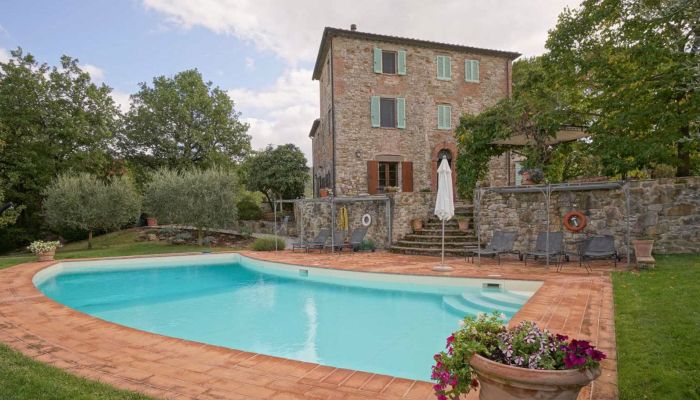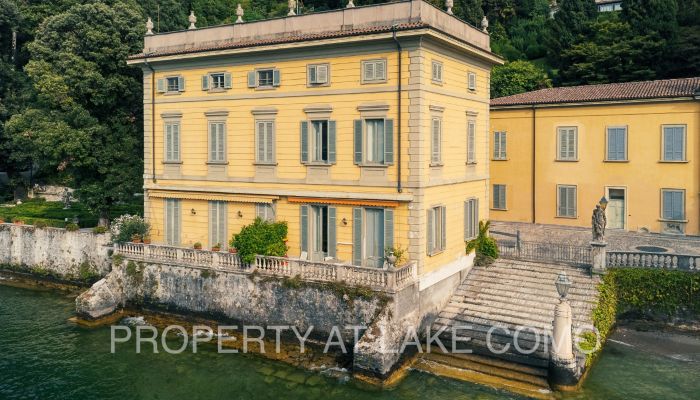This page gives a rough overview of the most common questions. Please note that the answers to legal questions do not represent or replace legal advice. In case of doubt, you should contact the broker, a lawyer or a competent authority.
1. Is Poland a safe country?
Poland is a member of the European Union and NATO and is no less secure or insecure than any other EU country. Although the current Polish government is controversial, political observers agree, that these memberships will not be in question in the future. Regardless, the people of Poland are generally considered helpful and hospitable. Those who have already spent a vacation in the country, report predominantly positive experiences, This is also confirmed by the numerous international business relations between Germany and Poland, for example. Foreigners who integrate and contribute to Poland are respected and supported.
Incidentally, the war in neighboring Ukraine is hardly having a negative impact on the Polish real estate market. On the contrary, due to the current high inflation rate of almost 18% (October 2022) and the current high demand for housing, Poland is currently experiencing an investment boom on the real estate market.
2. Should I learn Polish when I move to Poland?
While in international metropolises like Warsaw or Krakow the English language is common and one can live there without knowledge of Polish, it is advisable to learn at least a little Polish. This is very helpful not only in rural areas and in everyday life, it gives every foreigner additional recognition and respect. Moreover, the Polish language as a whole is not as difficult as its reputation, if you keep on the ball with a certain regularity.
3. How many castles are there in Poland?
Throughout present-day Poland, it is estimated that there are more than 12,000 castles, palaces, manor houses and rural residences. The castles in the western part of Poland are mainly of Prussian origin, while the residences in central and eastern Poland are mostly of Polish nobility. Some historic manors were heavily rebuilt after 1945 and have not been restored to this day. Many other manors are excellent examples of restoration and testify to the good reputation of Polish craftsmen. There are also several restored ruins in Poland: Here, companies and dedicated groups are doing great work and many a ruin has been rebuilt from the remaining enclosing walls.
4. In which voivodeship are the most castles?
Most rural residences are located in Wielkopolska Voivodeship, followed by Dolnośląskie with numerous larger castles and Mazowsze, the region surrounding the Warsaw metropolitan area.
5. Is there any protection of monuments in Poland?
Of course. Even if fewer and fewer subsidies are available overall and the Polish tax program Pałacyk Plus expires at the end of 2022, the protection of historical monuments has developed very positively within the last 20 years and has achieved a high status today. Overall, Polish monument protection laws do not differ significantly from laws in other European countries. The acquisition of a listed property in Poland always requires a dialogue with authorities, but at the same time brings tax advantages. Depending on the planned project, it is advisable to contact the responsible monument authority before you intend to buy. In Poland, there is a State Historic Preservationist ("Wojewódzki konserwator zabytków"), who, depending on the status of the monument, approves and monitors construction activities.
6. Are there any restrictions when buying a property in Poland?
In principle, the purchase of real estate of any kind in Poland is permit-free for EU citizens. There are two possible situations in which a purchase is subject to approval.
- The land or a part thereof is designated as agricultural land
- The buyer is not a citizen of an EU country
Re 1:
The sale of agricultural land with an area of more than 1 ha is regulated by the agricultural authority KOWR. If a private owner wishes to sell a property (e.g. manor house with a park) with an area of 10 ha, he must obtain a permit for the sale from the authority.
From the practice of recent years, it can be stated that hardly any transaction in relation to the purchase of a bigger historic property has been problematic in this respect. In most cases, neither the authority nor local agricultural companies make use of their right of first refusal. As soon as the authority has given its approval - usually within a month, it is irrelevant whether the land is 2 or 20 hectares in size and who buys it. From this moment on, such offers appear on real estate portals and you can assume that the legal change of ownership takes place with the signing of the notarized purchase contract.
Sometimes, however, caution is advised because not every owner is aware that he or she may need to obtain a permit before selling. Therefore, especially in the case of privately offered properties with a plot size of more than one hectare, find out whether the sale is legal.
Re 2:
Non-EU citizens who wish to purchase real estate in Poland always require the the approval of the Polish Ministry of the Interior. Such permission is usually granted if the applicant can prove a certain connection to Poland, for example through relatives or spouses. Even if the buyer plans to move permanently to Poland in order to start a business activity there. In addition, the Ministry of the Interior assesses legal and security aspects of the applicant in the procedure.
English-speaking brokers in Poland will assist you in requesting, completing and submitting the relevant applications. The fees for this are around 500 EUR (as of 2022). The processing time is usually at least one month, in some cases it can be even considerably longer.
The authority shall issue such a permit only for one affected property. Any further acquisition of real estate by persons outside the European Community requires renewed approval by the authorities.
7. Is there a cap on land acquisition?
In Poland, private individuals and companies with no agricultural connection may acquire or own a maximum of 100 hectares of land (as of 2022).
8. Are there foreign citizens who own a historical property in Poland?
Yes. We are aware of owners from the UK, USA, Germany and the Netherlands, among others.
9. How much is the renovation of a castle in Poland?
The renovation of a castle or a listed building can become a complex matter if you do not have sufficient financial resources and have no previous experience in the general handling of monuments.
At this point it must also be mentioned that many a dream of living in a castle in the country has already burst due to serious miscalculations. In addition, the costs in the construction industry have also risen drastically in Poland.
Although it is difficult to make general and reliable cost estimates, current empirical values can be used. For a manor house that needs to be renovated from the basement to the roof, you can expect min. 5 000 zł (1,100 EUR) per square meter. For a smaller manor house with 500 m² of living space, this is: 5 000 * 500=2 500 000 zł / 543.000 EUR.
By the way, in Poland there are excellent craftsmen and companies specializing in the restoration of historical monuments. If you want a mediation, please get in touch!
10. How much is a Polish castle?
Prices for palaces and mansions in Poland vary depending on the condition, region, location, size of the plot and many other factors. Real bargains are very rare today and only possible with a lot of luck. Currently, the cheapest property on REALPORTICO is listed for 70.000 EUR, the most expensive property is listed for 7.500.000 EUR.
However, in addition to the Internet listings, there are many other country properties that can be purchased for little money. These are often ruins in "difficult" locations, which could not be marketed for several years. Thus it is no secret that e.g. bargain estates in the immediate border location to the Kaliningrad oblast were hardly in demand even 20 years ago.
11. What are typical utilization concepts for castles in Poland?
In addition to private residential uses, the most common use concepts are:
- 1. Residential and commercial
- Mixed use: private residential and vacation rental.
- 2. Apartments
- Conversion to multiple rental or condominium units.
- 3. Corporate real estate / office space
- Corporate real estate for business purposes of all kinds.
- 4. Eventlocation
- Venue for all types of events.
- 5. Hotel / Tourism
- Possibilities of use in the field of tourism, gastronomy and hotel business.
- 6. Health and care
- Health, recreation, care and social services facilities.
- 7. Schools and training centers
- Educational and training institutions of all kinds.
- 8. Museum / exhibitions
- Private museums are few and far between because they are generally not economically viable to operate.
12. Can I finance a property in Poland by a Polish bank?
Theoretically, it is possible to finance a property through a Polish bank. However, this does not make much sense and is not used in practice, as it is associated with high requirements, bureaucracy and considerable additional work. Financing issues should therefore always be clarified via a bank in the borrower's country. In this case, however, you must assume that a domestic bank will only finance the purchase of a foreign property if sufficient collateral is available, e.g. in the form of real estate ownership.
13. How much are the notary fees when buying real estate in Poland?
Notary fees are based on the value of the transaction and are regulated in the Fee Ordinance for Notaries. They are made up of a fixed and variable component. Overall, notary fees in Poland are significantly lower than in Germany.
Current examples in 2022:
Transaction value: 1 000 000 zł (~ 217.000 EUR)
Notary fees: 4 770 zł (~ 1.037 EUR)
Transaction value: 5 000 000 zł (~ 1.087.000 EUR)
Notary fees: 14 270 zł (~ 3.102 EUR)
Note that notary fees are stated without tax and Polish sales tax of 23% is also payable. In addition, the fee for the land register entry in the amount of 200 zł is required.
14. How much is the tax for a historic property in Poland?
Good news for all future castle owners. Registered monuments ("Rejestr zabytków") are exempt from property tax in Poland. Owners of castles, manor houses and listed properties do not pay property tax.
15. What other costs are involved in buying real estate in Poland?
In Poland, unlike in Germany, there is no land transfer tax. Instead, a one-time fee is charged for "civil law transactions". (Podatek od czynności cywilnoprawnych). The amount is 2% of the transaction value and is paid directly to the notary upon signing the notarized purchase agreement.







 06019 Preggio, Umbria
06019 Preggio, Umbria

 Creixell, Catalonia
Creixell, Catalonia



 Goniembice, Greater Poland Voivodeship
Goniembice, Greater Poland Voivodeship
